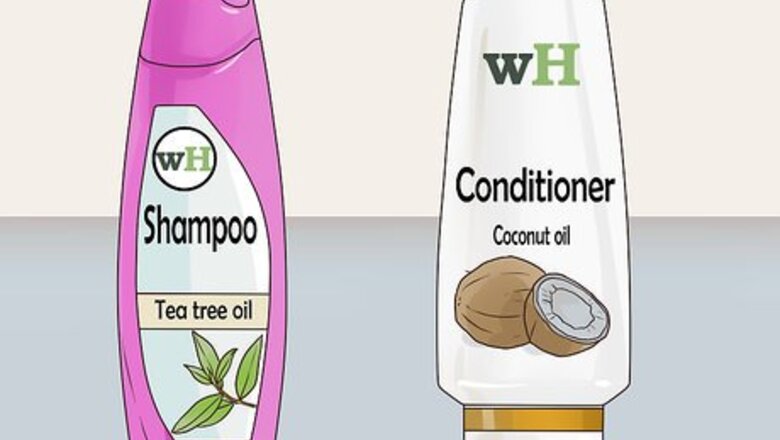
views
Improving Your Hair Care Routine
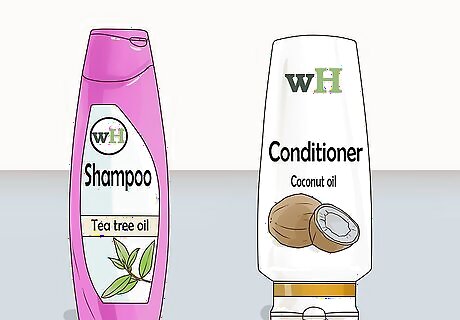
Switch your shampoo for a more natural version. Buildup from your typical shampoo or conditioner may be coating your scalp and causing it to itch. Purchase a new shampoo and conditioner—preferably ones that contain natural ingredients, such as tea tree oil, coconut oil, jojoba, or zinc pyrithione. Look for healthy shampoos at a local supermarket or health-food store.
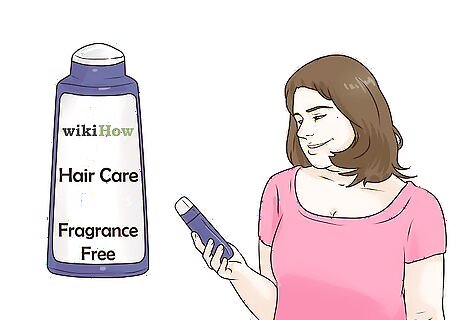
Purchase hair-care products without fragrance. Perfumes in hair-care products can irritate your scalp and cause it to itch. When shopping, look for products that state “fragrance free” on the label. If you can't find fragrance-free products, look for ones that state “hypoallergenic” on the label. You can also try using a hair-care product that is designed for babies or individuals with sensitive skin.
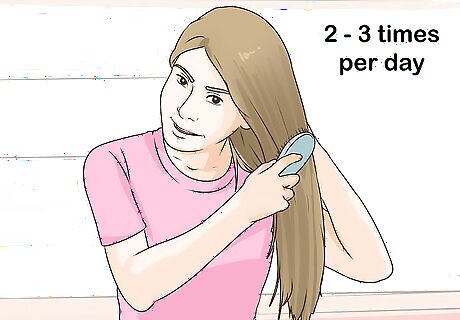
Groom your hair regularly. Brush or comb your hair two to three times per day to distribute natural oils, paying special attention to the scalp. Brushing your hair with a clean, soft hairbrush promotes blood flow and spreads natural oils to alleviate an itchy scalp. Brush gently. Aggressive, harsh brushing may scratch or irritate your scalp and cause the itching to worsen.
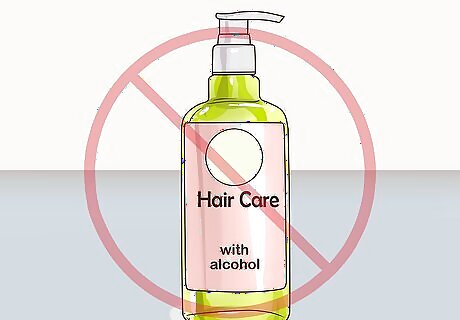
Stop using hair-care products that contain alcohol. Keeping alcohol off of your scalp is also the most effective method to cut back on dandruff (which itself is a sign of an itchy scalp). Hair-care products that are high in alcohol can also lead to (or worsen the effects of) itchy and painful skin conditions on your scalp, including eczema, sebborhea, and seborrheic dermatitis. Alcohol is a powerful drying agent, and it can easily dry out your scalp and cause it to itch badly.
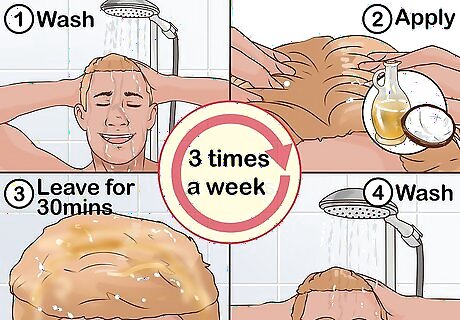
Apply coconut oil to your scalp. Coconut oil creates a barrier that helps keep skin moisturized, and hence it is an effective way to treat an itchy scalp. To apply, rub a little coconut oil onto your scalp when it is clean (after you have washed your hair). Leave the oil on for at least half an hour, and then wash your hair with a perfume-free shampoo. Follow this remedy three times a week. Another option is to gently heat coconut oil so that it melts. Add it to your shampoo before washing your hair.
Caring for Your Scalp
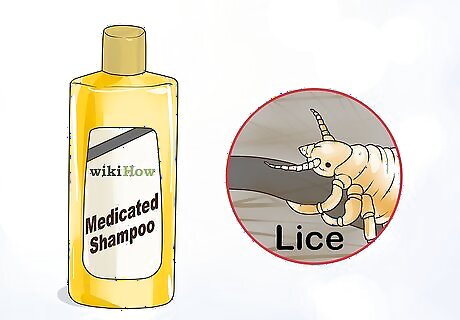
Treat head lice with a medicated shampoo. Head lice are unwanted and unpleasant, but they're easy to get rid of. Have somebody check your head for bugs or their eggs—called nits—attached near the base of the hair shaft. The itching that people feel when infested with lice is due to your skin reacting to the saliva of the lice. To get rid of lice, use a medicated shampoo as directed, and wash all bedding and clothes you've worn. Have any non-washable items dry-cleaned (including plush toys). Vacuum carpets and upholstered furniture. Soak hair-care products (combs, brushes, scrunchies, barrettes, etc.) in rubbing alcohol or medicated shampoo for an hour.
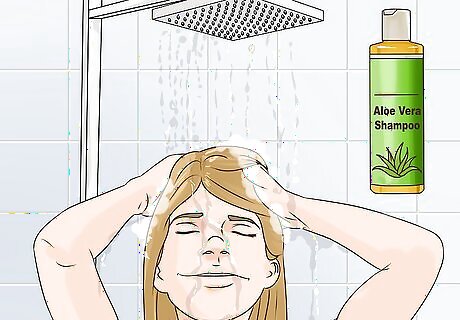
Apply aloe vera to alleviate sunburn symptoms. In the summer, especially the first bright days of summer, it's easy to get sunburned on your scalp. As your sunburned skin begins to heal, it will often start to feel itchy. Use an aloe vera shampoo or conditioner to alleviate the itching. If you know you're going to be in the sun for over an hour, wear a hat or apply a layer of sunscreen to your scalp.
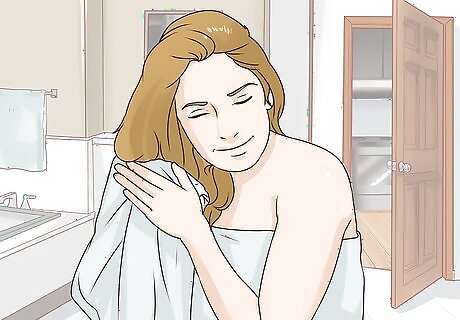
Dry your hair fully after a shower or bath. If you wear your hair long, don't put it up while it's still wet. Let your hair fully dry out before putting it up—otherwise, having wet hair pressed against your scalp all day will cause the skin to itch. Similarly, you may need to dry your hair and scalp after having been out in the sun for hours. If you're in the sun long enough to start sweating on your scalp, the excess sweat production can also cause your scalp to itch.
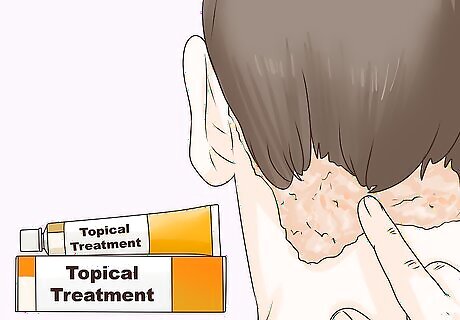
Apply a topical treatment to stop scalp psoriasis. Psoriasis is a chronic condition in which skin cells grow at an unnatural rate and become red, raised patches. The buildup of extra skin cells can cause itching and discomfort. Psoriasis can typically be treated with a topical ointment or medicated shampoo containing salicylic acid. If you think you have this condition, talk to your primary doctor or dermatologist. They should be able to prescribe you a medicated ointment or shampoo, or recommend an over-the-counter option.
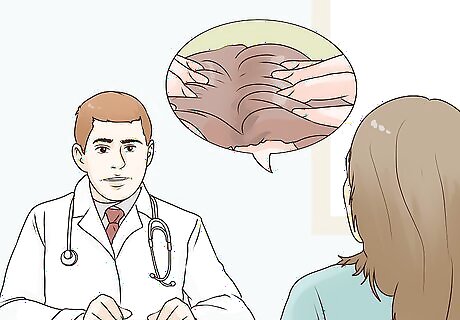
Visit a dermatologist for ongoing itching. If itching continues unabated, it could be a sign of a more serious medical skin condition including: shingles, fungal infections like Tinea Amiantacea or Lichen Planopilaris, dermatitis, and ringworm. Nearly all of these conditions will be accompanied by a flaky or oozing scalp or visible rash. Consult with your doctor. They will be able to diagnose your condition and prescribe you the appropriate treatment.
Altering Your Lifestyle
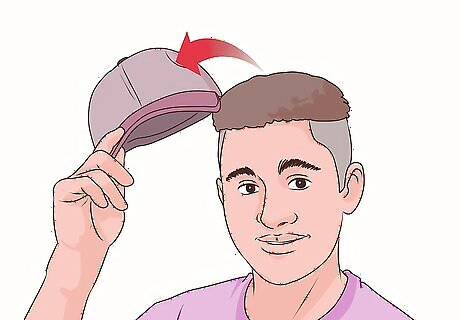
Give your scalp time to air out. Your scalp needs to “breathe” just like the rest of your skin, in order to remain healthy. If you always wear a hat or frequently wear a wig, you are likely restricting air flow to your scalp, which can cause your scalp to itch. If you notice your scalp itching more when you wear hats or wigs, take a break from the head coverings and let your scalp air out.
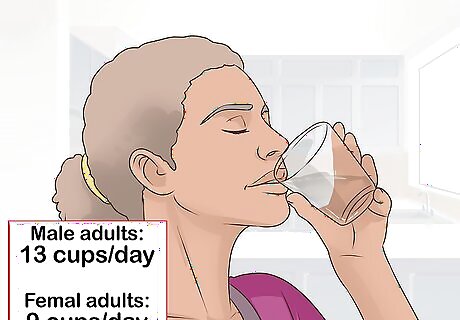
Stay well hydrated. Dehydration will affect your skin, and skin without enough water becomes dry and itchy. Although it's important to keep your hair hydrated through the use of hydrating, non-drying shampoo, you can help your scalp by avoiding bodily dehydration in general. Talk to your doctor and he or she will tell you how much fluid you should be drinking for your age and weight. Average male and female adults should drink at least 13 cups (3 liters) and 9 cups (2.2 liters) of fluid a day, respectively.
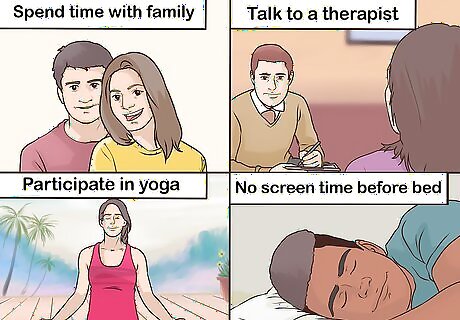
Reduce your daily stress and anxiety to decrease itching. Anxiety can play havoc with a body in general, and it has an effect on your scalp, too. If you do not have a rash but feel itching on your face and neck, stress could be the primary factor causing these symptoms. Easy ways to decrease your daily stress and anxiety include: Spend more time relaxing with family and friends. Talk about your stress or anxiety with a close personal friend or a therapist. Participate in a calming practice like yoga or meditation. Take an hour away from screens (phone, computer, TV, tablet) before your bedtime.




















Comments
0 comment